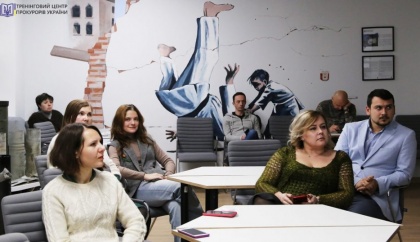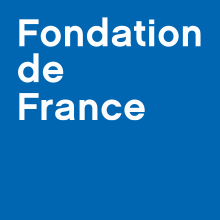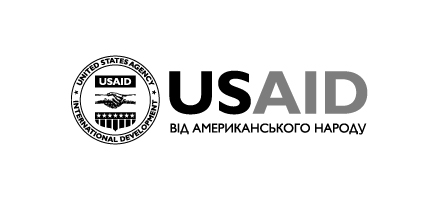
The Training Center for Prosecutors of Ukraine uses human rights documentaries to promote a victim-centered approach.
Reprinted from “Loier”.
In 2019, as a result of the prosecution system reform, the Training Center for Prosecutors of Ukraine was created as a new institution for professional training of prosecutors.
Since 2023, the Training Center of Prosecutors of Ukraine has been active not only in advanced training of experienced prosecutors, but also in the initial education of newly appointed trainee prosecutors of district prosecutor's offices.
Changing the rules for training of prosecutors requires new forms and new approaches to training.
What challenges do prosecutors and trainers of the Center face during the war? What methods of work help train motivated professionals? Is there room for experiments in this crucial process?
This was discussed by Olesya Otradnova, Director of the Training Center for Prosecutors of Ukraine, and Oleg Duka, Deputy Director of the Center.
TRAINING IS NOT A PUNISHMENT
The staff of the Training Center decided to focus their efforts on introducing new training methods to avoid a formalistic approach to work. The Director of the Center is convinced that, only when the students of the Center are interested in learning, it is possible to change the paradigm of thinking and instill new knowledge.
It would seem that professionals with many years of experience in the prosecutor's office do not need new approaches and can be satisfied with the traditional forms of presentation. But will this approach yield the desired results?
“The classic lecture format, when a professor comes forward and talks for an hour and a half, no longer works for an adult audience. It is meaningless, because people start to get distracted after 10 minutes. Professionals who come to our Center already know a lot and are sometimes skeptical about the educational process — what can you teach a person who has been working in the prosecutor's office for 20 years?,” says Olesya Otradnova.
“They are really excellent professionals who have a difficult and often unpleasant job. Prosecutors do not work with pink ponies — they deal with crimes and criminals. A formal approach to teaching does not appeal to them. That's why we use gamification of learning, brainstorming, small group work, case studies — everything that helps to avoid formal education and diversify the ways of sharing new knowledge,” the Center director adds.

This approach to training is already used in Ukraine, but this experience is unique in the criminal justice system.
“We can say that we are at the forefront of the process,” says Director Olesya Otradnova, “We came to change the old system of prosecutors' education. And we are succeeding.”
“THE FOCUS OF CRIMINAL PROCEEDINGS IS ON THE VICTIM”
Today, the prosecutor's office is implementing a victim-centered approach. Previously, it did not exist in Ukraine: the task of the prosecutor's office was to bring the offender to justice, and victims remained outside the scope of criminal justice. Today, the system is being redesigned.
The Prosecutor's Office has created a separate structural unit, the Coordination Center for Victims and Witnesses.
So far, it focuses on victims and witnesses of war crimes, but this is a pilot project. If it succeeds, it will continue to work with all categories of victims.
“The Training Center has an important task: help prosecutors refocus their attention on the victims. After all, it is these people who demand justice. The prosecutor's task is to restore justice for the victim, and punishing the offender is part of this process,” emphasizes Olesya Otradnova.
“For instance, human trafficking is becoming an increasing threat because many of our women have found themselves alone with their children abroad, in foreign countries and without the support of their families. This makes them more susceptible to criminals. Corruption, environmental crimes, organized crime, and drugs are also aspects of our reality that prosecutors have to deal with."
DOCUMENTARY FILMS FOR PROSECUTORS
In order to implement a victim-centered approach, it is necessary to change the paradigm of prosecutors' work. The Center's staff was looking for ways to “instill” this idea in their students in order to convince prosecutors-in-training and experienced professionals of the value of the new approach.

Oleh Duka
In search of a solution, Oleh Duka, Deputy Director of the Training Center, suggested discussing human rights documentaries from the DOCU/CLUB Network collection with the students.
“The idea turned out to be surprisingly effective. We watched and discussed the film ‘Lisa, Go Home!’ by Lithuanian director Oksana Buraja about a girl from a dysfunctional family. But we watched it from the point of view of a juvenile prosecutor,” says Oleh Duka.
“We’ve discussed what the prosecutor can do in this case, how to protect the rights of the child, at what stage should the social services become involved... The audience began to reflect and analyze the situation. We were very pleased with their reaction and involvement in this work,” the Center's deputy director adds.
The team of the Training Center set a goal: to introduce human rights documentaries into the educational process and form a professional and humane attitude among the students towards the issues raised in the films.
Olesya Otradnova explains: “These films make prosecutors aware of the need to restore justice for victims. They are not just educational movies about the oceans or space. In these documentaries, characters always suffer because their rights are violated. Prosecutors face similar problems and people in their work and have to restore justice to them.”
“Our listeners undoubtedly are well aware of the intricacies of the criminal process and human rights. However, theory works better when it can be felt. Documentary films help us understand the pain and needs of the victims,” says the director.
The authors of the idea first held several test screenings and discussions for the Center's team.
“We’ve conducted the pilot screenings for ourselves, that is, our consultants, experts, and the staff of the Training Center who work with the trainees,” says the director. “It was important to check what emotions the film evokes, how to apply them to our work, and how to make the discussion of the film as effective as possible from a professional point of view.”
This program is currently implemented for intern prosecutors; subsequently, it will be realized within the framework of other trainings for more experienced audiences.
The development of the DOCU/CLUB Network is funded by the United States Agency for International Development (USAID), the Embassy of Sweden in Ukraine, the National Endowment for Democracy (NED) and Fondation de France.
The opinions, conclusions, or recommendations of this publication are those of the authors and compilers and do not necessarily reflect the views of the governments or charitable organizations of these countries. The authors and compilers are solely responsible for the content of this publication.




